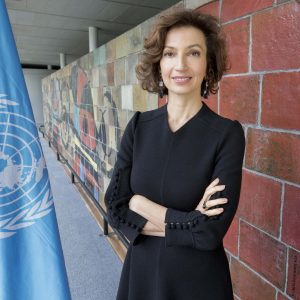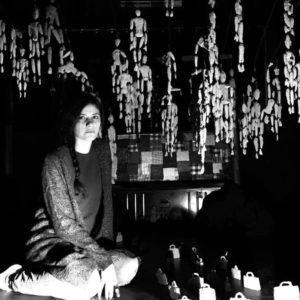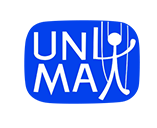Celebrated since 2003 on the initiative of the Union Internationale de la Marionette (UNIMA – the International Puppetry Asso- ciation), World Puppetry Day is an opportunity to honour what is an exceptionally rich and ancient art.
The skill of subtle movements. The interplay between gesture and illusion, between shadow and light. The mastery of costume, form and sculpture. The art of dramatization, of concision and symbolism. Technical virtuosity and poetry. The art of puppetry is universal. It is a consummate art.
To paraphrase Paul Claudel, puppets are words which act. Puppets, through this actual narration, can embody the everyday just as well as they can bring to life tales and stories from long ago. An inestimable manifestation of heritage, the art of puppetry – whether the puppets are part of a solemn ritual or set against a modern-day backdrop – is also utterly contemporary.
This is borne out by UNESCO’s Representative List of the Intangible Cultural Heritage of Humanity, which to date contains 12 different forms of this art. From Cambodian Sbek Thom to Slovak and Czech puppet theatre, each form represents an exceptional concentration of skill and tradition and a shared heritage which must be protected.
This commitment is that much more important today, when this fragile art faces unprecedented challenges.
First and foremost, the coronavirus disease (COVID-19) pandemic has reminded us just how much we need puppets’ evocative and inspiring power. At the same time, however, it has also endangered the survival of puppetry, robbing countless puppeteers of the conditions in which to ply their trade, depriving them of their often very unstable income. UNIMA’s efforts to financially support the sector’s cultural agents are thus invaluable and must be widely supported.
Beyond the crisis, however, the art of puppetry faces the same threats as those faced by cultural diversity in general. And for this in-person art, the digital transition of cultural life is of particular concern.
It was thus in order to outline a vision for the future and to think of ways to overcome the crisis that last April, UNESCO launched the global ResiliArt debate movement, which brings together artists and culture professionals to reflect on the challenges confronting the sector. Thanks to UNIMA’s support, in 2020, more than 15 debates took place with puppetry experts from around the world. We must now draw lessons from the experience and mobilize collectively to ensure the continued existence and spread of this art form and ensure that it continues to inspire us.
On World Puppetry Day, UNESCO pays tribute to all those who are keeping this ancient art alive with passion and, in these strange times, with courage.
Audrey Azoulay
 Elected head of UNESCO in 2017, Audrey Azoulay launched a vast Strategic Transformation programme for the Organization with a view to position UNESCO at the heart of emerging challenges in the XXI century. In this spirit, the Director-General launched several major projects on the protection of cultural heritage (through the initiative “Revive the Spirit of Mosul” in Iraq), on the achievement of universal quality education (in particular for girls and women), as well as on UNESCO’s role as a global laboratory of ideas (on artificial intelligence and its ethical implications).
Elected head of UNESCO in 2017, Audrey Azoulay launched a vast Strategic Transformation programme for the Organization with a view to position UNESCO at the heart of emerging challenges in the XXI century. In this spirit, the Director-General launched several major projects on the protection of cultural heritage (through the initiative “Revive the Spirit of Mosul” in Iraq), on the achievement of universal quality education (in particular for girls and women), as well as on UNESCO’s role as a global laboratory of ideas (on artificial intelligence and its ethical implications).
A former student of the Ecole Nationale d’Administration, Audrey Azoulay is a graduate of the Institut d’Etudes Politiques de Paris and holds a Diploma of Business Administration from the University of Lancaster (United Kingdom). Active in the cultural sector from the outset of her career, she worked, among other things, on the financing of the French public audiovisual sector and on the reform and modernisation of the French public aid systems for the film industry.
As the French Minister of Culture, she was very strongly committed to the protection of endangered heritage, particularly in the Middle East. She was also dedicated to the facilitation of children’s access to culture by launching artistic and cultural education programmes (the “Création en cours” programmes and innovative cultural infrastructures “Microfolies”).
Audrey Azoulay is committed to positioning UNESCO as a platform for humanist cooperation, as a standards-producing arena and as an agency of experts that helps to disseminate knowledge and know-how throughout the world to the greatest number of people.”
Maryam Samaan, author of the poster
 Born in 1984 in Damascus, Syria, Maryam Samaan practises plastic and scenic arts. A graduate in painting from the Damascus Fine Arts and in scenography from the Damascus Higher Institute of Dramatic Arts, she came to France in 2009 to continue her theatre studies at the Sorbonne Nouvelle – Paris 3 University and at the EESAB in Rennes in design. She went to Lebanon between 2016 and 2019 to work in refugee camps with and for children, offering puppet shows, workshops and an exhibition of drawings. Maryam Samaan has been back in France since late 2019.
Born in 1984 in Damascus, Syria, Maryam Samaan practises plastic and scenic arts. A graduate in painting from the Damascus Fine Arts and in scenography from the Damascus Higher Institute of Dramatic Arts, she came to France in 2009 to continue her theatre studies at the Sorbonne Nouvelle – Paris 3 University and at the EESAB in Rennes in design. She went to Lebanon between 2016 and 2019 to work in refugee camps with and for children, offering puppet shows, workshops and an exhibition of drawings. Maryam Samaan has been back in France since late 2019.
Instagram: https://www.instagram.com/maryamsamaan/?hl=fr
Facebook: https://www.facebook.com/maryam.m.samaan
